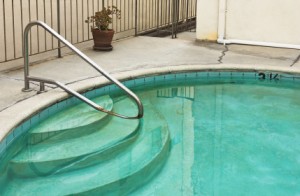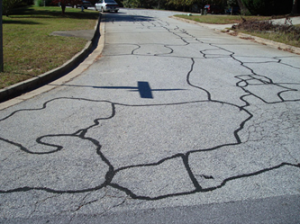 According to everyone’s favorite groundhog (or least favorite, depending on who you ask), we are in for six more weeks of winter. That is six more weeks of snow. That is six more weeks of ice. And that is six more weeks of pavement damage. You see, the freeze-thaw cycle wreaks havoc on your asphalt, leading to cracking and other forms of pavement distress. And don’t get us started on potholes.
According to everyone’s favorite groundhog (or least favorite, depending on who you ask), we are in for six more weeks of winter. That is six more weeks of snow. That is six more weeks of ice. And that is six more weeks of pavement damage. You see, the freeze-thaw cycle wreaks havoc on your asphalt, leading to cracking and other forms of pavement distress. And don’t get us started on potholes.
Too late…
The Good, the Bad, the Cold, and the Hot of Pothole Repair
Potholes are not just eyesores. They are a sign of underlying pavement issues. And if not addressed in a timely manner, these issues could worsen. On top of that, potholes open business owners and property managers up to a whole new world of liability concerns.
According one local attorney, “all Maryland businesses, corporations, employers and business owners have a legal obligation and responsibility to properly maintain all areas of their property. This includes parking lots, driveways and sidewalks.”
“Property owners have a responsibility to make sure either that these hazards are repaired or that people walking and driving on their property are warned against them,” added a New York attorney.
This is because potholes represent two real risks: vehicle damage and trip/fall hazards. When it comes to vehicles, potholes can do a number of bad things to wheels, tires, and suspension. Then comes the trip/fall side of things. At the end of the day, the only person liable for injuries caused by potholes is you.
Pothole Repair Services in Baltimore, Maryland
The asphalt paving experts at PTG Enterprises have managed hundreds of projects throughout Baltimore, Maryland, Washington DC, and Virginia pavement projects and have the experience you need. You can expect a fair proposal, professionalism, and quality work. A good contractor is hard to find!
Click Here for a proposal.
Cold Patch vs. Hot Mix
If you notice a crack, pothole, or other form of asphalt damage, it is important to have it repaired quickly to avoid the issue worsening. The longer you put off pothole repair, the worse the underlying damage can and will become.
There are two ways to fix potholes. First is Cold Patch, which is a temporary fix. The next is Hot Mix, which is a more permanent fix.
To find out which form of Pothole Repair makes the most sense for you, please contact PTG Enterprises aka My Pavement Guy today by calling 410-636-8777, or click here today! You can check us out on Facebook and Twitter as well!

























